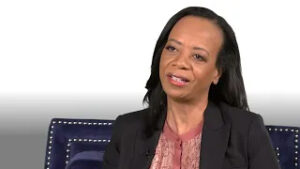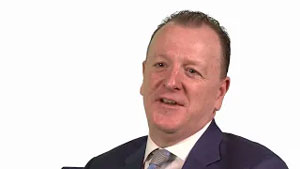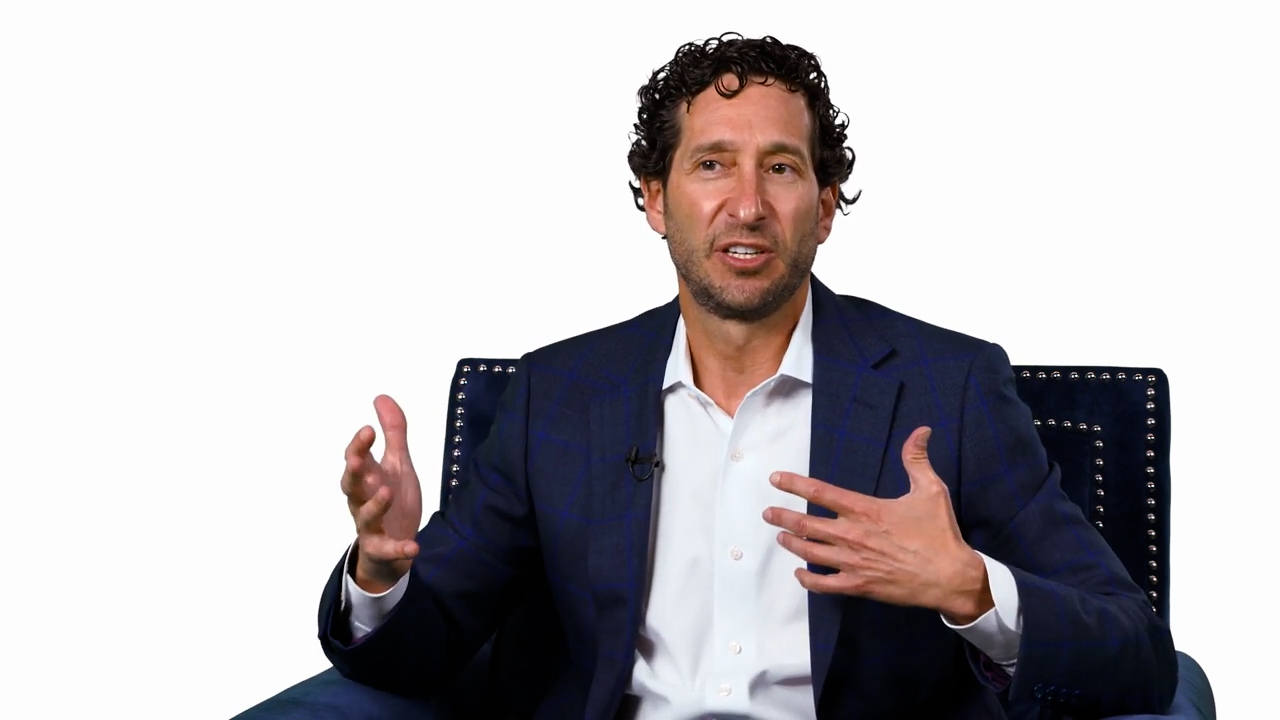This year’s Nevada Legislature will mark a year of firsts. It will be the first legislative session this century to be held under a new governor, and the first senate session this century to be presided over by a new lieutenant governor.
The most important first, however, will come in the Assembly, where Barbara Buckley will become the first female speaker of the Assembly in Nevada history.
No one could argue that Nevada has lagged behind the nation when it comes to women and minorities gaining access to powerful government positions. For many years, four of the seven Clark County commissioners were women. Except for governor, every Constitutional office has had a female representative.
However, never before has a woman held this position of power in the Legislature. As Speaker, Buckley will be the leader of the Democrats in the Assembly, and set policy for that body. An astute and veteran legislator, Buckley served for the past two sessions as majority leader, so she is no stranger to the process.
Her philosophies and relationships are much different from the past two speakers, however, and most insiders can’t wait to see how her style contrasts with that of her counterpart in the Senate, Republican Bill Raggio, who has led that body for more than a decade. Raggio says this will be his last session. He has been a senator since 1970.
“Barbara will no doubt shake things up,” said one lobbyist and veteran of the process, who asked that his name not be used. “She’s smart, and takes no prisoners. But no one knows this process better than Raggio. Hopefully, they will find a way to work together, or we could be in Carson City until Nevada Day.”
The legislative session is constitutionally mandated to run 120 days, but the past three sessions have run more than the set time-frame. At the end of 120 days, the Governor must call a “special session” to allow legislators to continue to debate and pass important budget bills.
“Barbara knows what she’s doing, and she’ll know how much to give in order to keep things moving,” said former Speaker Richard Perkins, who appointed Buckley majority leader when he became speaker in 2001. “Like every speaker, she’ll put the wants and needs of Nevada ahead of her own, but she’ll fight for what she knows this state needs to keep moving forward.”
The Buckley/Raggio interplay will headline a session that is generally devoid of huge issues such as reapportionment and taxes, which have overshadowed previous legislatures. Another scenario that will be closely watched is how the new governor, Jim Gibbons, will react with his former colleagues. Gibbons served in the Assembly in the early 1990s.
The Budget
Gibbons is in the process of revamping and editing the budget his predecessor, Kenny Guinn, left for him. Guinn left the former congressman in an interesting position by funding several popular items with money from the Nevada’s tax surplus (expected to be nearly $1 billion).
One such proposal is full-day kindergarten. Proponents, such as Guinn and many leaders in both parties, tout this as a much-needed program if Nevada is ever to improve its lagging educational system.
Others, such as State Senator Bob Beers, tout it as nothing more than “full day babysitting” for Nevada’s children. He and other legislators are skeptical of studies that show greater achievement by kindergartners who attend full day classes.
“Schools can take this fairly significant chunk of money and do better things with it,” Beers said.
Beers will certainly have supporters among the majority caucus in the Senate, and that spells trouble for kindergarten funding. Buckley and her new majority leader, John Oceguera, Democrat from Las Vegas, have said it will be a priority for their caucus.
“I think it’s a must,” Oceguera said.
Another issue likely to receive much attention is prison funding and construction. Assembly Democrats thought so highly of the issue, they have created a special committee to research and propose ideas. It will be headed by legislative veteran and former Tax Committee Chair David Parks, Democrat from Las Vegas.
Prison officials, as well as local law enforcement leaders, have raised red flags as Nevada’s incarcerated population continues to grow, but jail construction lags far behind demand. Corrections department officials have submitted a budget to expand five prisons to try to keep up with Nevada’s growing inmate population.
Local officials are also extremely worried about this problem. Incoming Clark County Sheriff Doug Gillespie said in a recent interview, bed space in the county’s jails is his top public safety concern.
Other issues likely to be strongly debated are road construction and health care costs. Traffic is always a hot-button issue with voters, and the Nevada Department of Transportation has already sounded the alarm that it needs additional funding for important projects in Clark County.
“We need to do something about our roads,” Oceguera said in a recent Las Vegas Review Journal article. “It will take political courage to do it.”
The problem lies within the strong anti-tax atmosphere that surrounds this legislative session. Governor Gibbons has pledged to sign no new tax or fee increases, so raising the gas tax in order to pay for new road construction is unlikely.
However, if money is shifted from the general fund or from the state’s excess revenues, less money will be left for education and other programs that are favorites of legislators.
Another possibility is for the Legislature to authorize a ballot question and let the people decide. With the current anti-tax climate, however, it’s unlikely the public, without a huge educational effort, is going to agree to raising taxes on anything, especially with gasoline prices as high as they are already.
Battling the high cost of healthcare is a consistent theme in every legislative session. Seniors, who make up a majority of the people who vote, are very vocal on this issue, as are union representatives who strongly support candidates on both sides of the political aisle.
The big win for the Democrats last session was allowing Nevadans access to cheaper prescription drugs from Canada. But that proposal wasn’t without its detractors, who felt for the most part that there was no way to ensure that drugs bought over the Internet are safe for public consumption.
Prescription drugs are sure to be on the agenda again, along with skyrocketing insurance costs and providing adequate access to healthcare for all Nevadans.
Aside from all the issues the Legislature will deal with, one of the biggest to watch will be how the new players will interact with each other.
Governor Gibbons’ administration made early strides to work together with Democratic Assembly leaders, joining them in fighting to reopen contract negotiations with 800 nurses at Valley and Desert Springs hospitals.
Recently, however, Gibbons said he will not support the funding of full-day kindergarten, a move which won’t win him any friends in the lower house. If a compromise can’t be reached, some experts feel it’s an issue the governor will lose.
Key Players
How Speaker Buckley will work with Senate Majority Leader Bill Raggio is also something to watch closely. A common practice late in the session is for leadership to take “hostages,” or delay bills that are important to members from the opposite house until they get their legislation through.
Buckley is a master of this strategy, as is Raggio. Eventually, however, compromises must be reached, and it will be interesting to see if both sides can work together before the 120-day deadline arrives.
Although there won’t be all that many new faces to be seen in Carson City this session, several players will be in new positions. Oceguera will not only be majority leader, but will chair the important Commerce Committee.
Many lobbyists and legislative veterans feel Oceguera, who grew up in Fallon, could play a key role because of his Northern Nevada roots. Although he represents a district in urban Clark County, he knows the needs of the rural parts of the state and can be an agent of compromise when necessary.
Other new committee chairs in the Assembly who could make an impact are: Kathy McClain on Taxation; Kelvin Atkinson on Transportation; and Marilyn Kirkpatrick on Government Affairs.
In the Senate, committee chairmanships will stay exactly as they were in 2005, but due to the loss of Senator Sandra Tiffany, Republican from Henderson, who lost to Joyce Woodhouse in November, the Democrats picked up one more seat, making the Republicans’ majority one vote, 11-10.
In order to offset this, Raggio announced that he is changing the make-up of some committees, reducing Senate Commerce and Labor to five members instead of seven and giving two senators dual committee assignments on afternoon panels.
Dina Titus will again lead the Democrats, who will certainly find their voice in the upper house intensified, especially if they can find a Republican or two to jump ship on important ssues. In the past, however, Titus has had a hard time corralling her caucus into a cohesive unit to block Republican legislation. And despite outward appearances, Democrats in the Senate and Assembly don’t always see eye-to-eye on things.
Senator Terry Care, Democrat from Las Vegas, could be the peacemaker and keep things going in the Senate, as he has close friends in the Republican caucus and great respect among lobbyists.
Lobbyists
Special interest groups and lobbyists always play a key role in the Legislature, and this year will be no different. Since outgoing Governor Guinn put in his budget full-day kindergarten and raises for teachers, expect the teacher’s union to be front and center while both houses wrestle with the budget.
Gaming, represented by Nevada Resorts executive Bill Bible, as well as R&R Partners’ Pete Ernaut and Billy Valliliadis, will be watching closely to see where excess money from the budget is spent. However, most large gaming companies hire their own lobbyists, such as MGM-Mirage with Josh Griffin, Station Casinos with Bill Gregory, and Harrahs with in-house Government Affairs Chief Karlos LaSane.
Danny Thompson will again represent AFL-CIO and other union interests. His close ties to Democratic leadership in the Assembly will give him a voice on any issues affecting working men and women.
The Las Vegas Chamber of Commerce lost its internal lobbyists last year when Government Affairs Vice President Christina Dugan quit, but the organization will still be represented by veterans Sam McMullen and George Ross.
Other players with large client lists who are sure to make an impact are: Alfredo Alonso, formerly with Lionel Sawyer & Collins and now with Lewis & Roca; Greg Ferraro; John Pappageorge with Kummer, Kaempfer, Bonner & Renshaw; the Jones Vargas team of Tony Sanchez, John Sande and Mike Alonso; and Bob Ostrovsky, who represents healthcare and gaming clients.
There is hope before the session starts that 120 days will be enough time to finish the state’s business. However, if past sessions are any indication, no one is making any summer vacation plans for early June.
Key Players in the 2007 Legislature
Assembly
Barbara Buckley, (D) Speaker of the Assembly– She’s smart, powerful and knows the legislative process as well as anyone. She has the respect of her caucus, and isn’t controlled by any special interest group. Buckley will have an agenda, and she very rarely loses.
John Oceguera, (D) Majority Leader – He has relationships in business and organized labor. As Commerce Committee chair, he will be an important player in healthcare legislation, as well as other key issues. Born in Northern Nevada, he could be a facilitator to try to bring compromise on contentious issues.
Bernie Anderson, (D) Judiciary Chairman – The Judiciary Committee gets more bills than any other legislative committee, and Anderson moves them through with efficiency. While no one is expecting fights on issues like construction defects or medical malpractice, Anderson will be ready if problems arise.
Marilyn Kirkpatrick, (D) Only a sophomore legislator, Buckley thought enough of her skills to name her chairman of Government Affairs. She’s tough but fair, and well liked by most of the municipalities that come in front of that committee.
Garn Mabey, (R) Minority Leader – The Republicans in the Assembly don’t figure to play a prominent role, and it will be interesting to watch how Maybey, who takes over for the first time as minority leader, works with his Democratic colleagues.
Francis Allen, (R) Assemblywoman – Gets along very well with Buckley and Oceguera, and could play a role in helping her colleagues pass legislation.
Senate
Bill Raggio, (R) Majority Leader – A legislative veteran in perhaps his last session, Raggio knows all and sees all. He knows every trick in the book, because he wrote most of them. The only question mark is whether he can hold his very diverse Republican caucus together for important votes. That will be a key if he wants to best Buckley at this game of political chess.
Randolph Townsend, (R) Chair, Commerce and Labor – Raggio’s right-hand man, Townsend is a key player on many issues and is expected to butt heads with Buckley on key legislation as he did last session. He runs a tight committee, and with two fewer members, should be able to get whatever he wants.
Bob Beers, (R) Senator – He’s conservative, and a strong opponent of much of the Assembly Democrats’ agenda. A strong numbers-guy, he knows the state budget and will push for cuts wherever possible. Could be a thorn in Raggio’s side when it comes to compromise.
Dina Titus, (D) Minority Leader – Titus survived a tough campaign against Gibbons for governor, and was surprisingly re-elected to her leadership post. She knows exactly how to frustrate Raggio and the Republicans, and now has another vote to do an even better job. Her only problem will be unity within her own caucus.
Steven Horsford, (D) – Rising star in the Senate, he has key relationships with labor and business groups that could help the Democrats pass their agenda in the Senate. He’s loyal, but could bolt from Titus if facing an issue he feels strongly about.
EXECUTIVE TEAM
Governor Jim Gibbons, (R) – The jury is out on how well Gibbons will do this legislative session. Guinn left him a budget filled with things that will be hard to remove, although he has already said he will do so with full-day kindergarten. He will need to find allies in both houses if he is to be successful in 2007, and they won’t be easy to locate early on.
Catherine Cortez Masto, (D) Attorney General – Cortez Masto could be called on for opinions on issues bogged down in the later stages of the process.
Ross Miller, (D) Secretary of State– Miller will have an aggressive and popular agenda of election reform and tightening restrictions on phony corporations.
Lobbyists
Sam McMullen / George Ross – McMullen knows his way around the legislative hallways, and knows how to get legislation passed (or killed) for his clients.
Clients: Bank of America Corporation and Nevada Subcontractor’s Association
Pete Ernaut / Billy Vassiliaidis – Although Vassiliadis will not be attending every day at the session, Ernaut is one of the smartest operatives in Carson City. As a former chief of staff to Governor Kenny Guinn and a former Assemblyman, he knows state government inside and out.
Clients: Howard Hughes Corporation and Las Vegas Metro Police Department
Bob Ostrovsky – A wizard at complex issues such as insurance and workman’s comp legislation, Ostrovsky will again be someone Townsend and others turn to on intricate issues requiring a delicate touch.
Clients: City of Las Vegas and Nevada Resort Association
Josh Griffin / Tim Crowley – This duo has risen to the top of the lobbying ranks with a wide range of clients. Liked by both sides of the aisle, they will be representing clients from mining to gaming.
Clients: American Nevada Corporation and Barrick Gold of North America
Danny Thompson – Thompson, a former chair of Assembly Commerce and Labor, is the dean of union lobbyists. Every issue involving labor will have his fingerprints, and he interfaces in many other issues, as well.
Clients: Nevada State AFL-CIO










